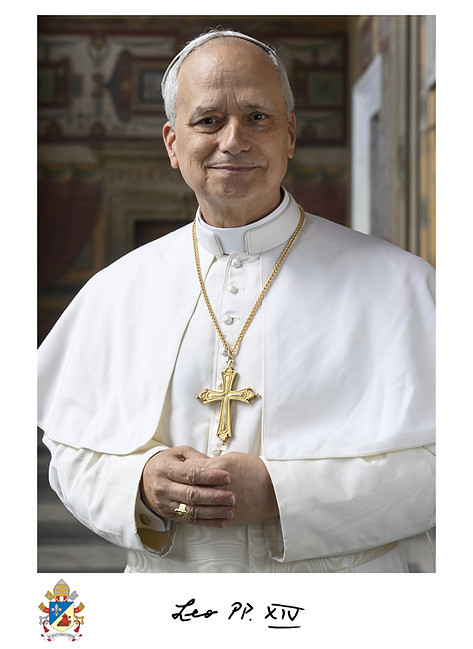Our Lady of the Snows Parish
.png)
4810 S. Leamington Ave. Chicago IL 60638. 773 582 2266

"Habemos Papam"!
Pope Leo XIV

Upcoming Events ⎮ Próximos eventos

Parish Office will be closed December 31 & January 1, 2026.
Nuestra Oficina Parroquial estará cerrada los días
31 de diciembre y 1 de enero de 2026.
This Week's Reflection
by
Fr. Juan Luis Andrade|
Dear brothers and sisters,
At the beginning of this new year, we gather to celebrate the feast of Mary, the Mother of God. On this day, we remember the solemnity of the Virgin Mary, Mother of the Lord, and we entrust ourselves to her intercession and maternal care.
Mary is a perfect example of faith and obedience to God. Her "yes" to God's will shows us the way to live in harmony with the will of our Creator. The Virgin Mary is a perfect example of a companion and guide on the path of faith, leading to a meeting with Jesus. She shows us how to follow her Son with confidence and love, and guides us in prayer and in our daily lives. As a spiritual mother, she cares for and protects us, and helps us grow in faith and draw closer to Jesus. Let us follow her example and ask for her intercession to help us find her Son and follow him with fidelity.
May her example inspire us to follow her path of faith and love. In this new year, let us ask Mary to guide and protect us. May she help us live in the presence of God and be faithful to his word. May her love and intercession accompany us in all the challenges and joys that await us. May this year be a time of grace and blessing for all of us. May we grow in faith and love, and may we be witnesses of God's love in the world. Happy New Year to all! Mary, Mother of God, pray for us.
Queridos hermanos y hermanas,
En este comienzo de un nuevo año, nos reunimos para celebrar la fiesta de María, la Madre de Dios. En este día, recordamos la solemnidad de la Virgen María, Madre del Señor, y nos encomendamos a su intercesión y maternal cuidado.
María es un ejemplo perfecto de fe y obediencia a Dios. Su "sí" a la voluntad de Dios nos muestra el camino para vivir en armonía con la voluntad de nuestro Creador. La Virgen María es un ejemplo perfecto de acompañante y guía en el camino de fe para el encuentro con Jesús. Ella nos muestra cómo seguir a su Hijo con confianza y amor, y nos guía en la oración y en la vida diaria. Como madre espiritual, nos cuida y protege, y nos ayuda a crecer en la fe y a acercarnos más a Jesús. Sigamos su ejemplo y pidamos su intercesión para que nos ayude a encontrar a su Hijo y a seguirlo con fidelidad.
Que su ejemplo nos inspire a seguir su camino de fe y amor. En este nuevo año, pidamos a María que nos guíe y nos proteja. Que ella nos ayude a vivir en la presencia de Dios y a ser fieles a su palabra. Que su amor y su intercesión nos acompañen en todos los desafíos y alegrías que nos esperan. Que este año sea un tiempo de gracia y bendición para todos nosotros. Que podamos crecer en la fe y en el amor, y que podamos ser testigos del amor de Dios en el mundo. ¡Feliz Año Nuevo a todos! María, Madre de Dios, ruega por nosotros.
OFFICE HOURS ⎮ HORARIO DE OFICINA
Monday (lunes) to Friday (Viernes)
9:00 am – 7:00 pm
&
Saturday | Sábado
9:00 am to 1:30 pm
Sunday |Domingo
9:00 am - 3:00 pm